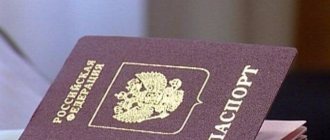Migration, in which people are forced to change their place of residence for a long time, has significant consequences for the economies of countries. Migration processes lead to changes in the social and political sphere and influence significant social and demographic processes within each state. Regardless of the consequences of a population changing their place of residence, migration processes require careful study and control by the government. Therefore, we will consider the main aspects relating to the long-term resettlement of citizens.
What is migration
Migration is the movement of people from one region to another for a period of more than 6 months. Resettlement can occur both within a country and between states. If the movement of citizens occurs within the borders of the country, then the process is considered internal. For example, the outflow of population to large cities in the Urals is internal migration.
There is also intercontinental migration, when people move from one continent to another.
If there is a movement of population flows between different states, then migration is called external. Migrants can change their place of residence either forcedly or voluntarily. In this case, people traveling abroad are called emigrants, and those entering are called immigrants.
One of the first migrations can hypothetically be considered the prehistoric migration of Indo-Europeans to India, called the Indo-Aryan migration.
Let's try to figure out what migrations are connected with and how they affect the life of society.
Factors of population migration
Definition 1
Migration factors are the set of social conditions in which this process occurs and which influence its intensity, volume, direction, as well as other parameters.
Depending on how the influence of certain migration factors on migration processes can be regulated, the following can be distinguished:
- constantly operating, uncontrollable factors: climatic features of the territory, geographical location of the area (seasonal temperature changes, the presence of harmful and dangerous insects, reptiles, etc., swampiness, earthquakes, floods, etc.);
- temporary factors - regulated by indirect influence, changing gradually: age, gender, ethnic composition of the population; level of development of the area, creation of social and industrial infrastructure;
- regulated factors: personnel policy; the presence or absence of certain social benefits; salary increase; changes in national policy; employment and living conditions of the population.
Help with student work on the topic Factors and features of population migration
Coursework 440 ₽ Essay 280 ₽ Test paper 200 ₽
Get completed work or consultation with a specialist on your educational project Find out the cost
The greatest impact on migration processes is exerted by the “temporary” factor – the composition of the population in terms of length of residence. In territories where the population is growing at a high rate due to migrants, the proportion of non-family men is higher.
The following migration factors are distinguished: positive (pull); negative (pushing).
The determining factors of migration can be both push and pull factors. At the first stage of the migration process, simultaneously with the factors that predetermine the intention to move (push factors), there are factors that determine which specific country or region a person wants to move to (pull factors).
Note 1
If the need to move to a particular region prevails, pull factors are decisive. If the desire to move generally, to any other place, prevails, then push factors prevail.
Have questions about this topic? Ask a question to the teacher and get an answer in 15 minutes! Ask a Question
Main reasons for migration in the world
The reasons for starting migration may differ in each particular case, but they can all be combined into one list. Most people who decide to change their region of residence strive to:
- improve the quality of life or living conditions of your family;
- realize your professional qualities, get a well-paid job and a good position;
- increase the level of knowledge and culture;
- improve health;
- be closer to family and friends;
- emigrate from the war zone, avoid social and ethnic conflicts;
- resolve work and family problems;
- move to a new location and restructure production, etc.
Scientists offer various classifications of factors leading to the resettlement of citizens. The reasons for changing the region of residence can be either widespread or purely individual, can be divided into typical or special, and can also be objective or subjective.
Political reasons
Political emigration usually results from a change of government. If the actions of the ruling regime are not consistent with a person’s civic beliefs, then failure to perceive the political situation can provoke a move abroad. People often change their place of residence to avoid becoming victims of political repression. For example, everyone knows the historical fact that millions of citizens left Nazi Germany.
Social reasons
Such migration factors are always closely connected with economic ones. The social reason is considered to be the movement of citizens who get married, as well as those who change their place of residence to reunite with relatives. Social reasons also include moving to obtain education and professional skills.
Economic reasons
These factors force the population to look for better living conditions and profitable work in other regions and countries. In this case, economic factors can be divided into 2 groups. The first is associated with the historical development and settlement of new territories and lands. For example, it includes the mass migration of blacks to America from Africa, which occurred in the 16th-19th centuries after a series of large-scale geographical discoveries.
The first group is also associated with the migration explosion in Europe in the 19th century, when migrants from European countries moved to America, Australia and South Africa.
The second group includes migration associated with the conclusion of labor contracts. A special place is given to the “brain drain” to Canada and the USA in the 60s of the 20th century. India, the Philippines and the countries of the former USSR provided the largest number of such emigrants.
Cultural reasons
The reason for this type of migration flow is usually the desire of people to return to their historical homeland and restore lost ethnic ties, joining the historical heritage and ancient traditions of their people.
Military situation
Military conflict in a state always leads to mass migration of people from their habitable places. They move to other regions, away from danger. This is how they try to save their lives and ensure the safety of their families. Such migrations occur spontaneously. Those displaced from war zones are called refugees.
Main reasons for migration
As noted above, motives for relocation can lie in a variety of areas of human life. Let's try to classify the main reasons for population migration.
Economic reasons
If you ask expats why they move, the most popular answer is the desire to improve their conditions and quality of life. People are looking for a decent salary and good prospects for their children. All these are economic reasons for migration. They tend to provoke international flows towards countries with more developed economies. An example is the constant movement of the population of Latin America to the United States.
The movement of people caused by economic reasons is often called labor migration. Personnel tend to flow from countries with significant numbers of workers to countries with large amounts of capital.
Moreover, the time of residence in a new country can be from a couple of months to several years. In addition to the USA and Canada, Western Europe and Australia attract labor migrants.
The main economic reasons for labor migration:
- different economic development of states, which is expressed in levels of wages and social security;
- different amounts of labor and unequal size of the labor market;
- discrepancy between the material and technical basis of the state and the number of workers and their level of education.
It should be noted that the well-known brain drain also applies to migration for economic reasons. The movement of highly qualified personnel used to be predominantly carried out in developed countries; now the prevailing trend is the movement of specialists to developing countries, where global corporations open new branches (transnational enterprises).
Social reasons
Population migration is influenced by a combination of reasons and it is not always possible to separate one from the other. Likewise, it is difficult to completely isolate social reasons from economic ones; they, as a rule, strongly depend on each other.
Moving to reunite with loved ones or get married can be considered exclusively social reasons. It is quite natural that when creating a family between people from different countries, one of them will have to move. This also includes living in another country for the purpose of obtaining an education.
When choosing a country where a person is going to migrate, integration into the new society plays an important role, therefore, first of all, countries where there are migrants from fellow countrymen will be selected.
Of course, migration also affects the society of the receiving state. Its main consequences are reflected in population changes according to:
- number and age correlation;
- level of education and social status;
- ethnic diversity.
Cultural reasons
Cultural reasons most often mean returning to their historical homeland. There, a person, by becoming familiar with traditions and visiting heritage sites of his people, can restore lost ethnic ties. The most famous example is the creation of the state of Israel after World War II, to which Jews still return. However, cultural migration can exist not only at the international level, but also within the country.
Such reasons for migration also include relocation to places with a more developed cultural environment. An obvious example is that many representatives of creative professions are moving from regions to megacities. This is due to both the economic component and the desire for self-realization. A large city is in any case a cultural center, which provides a lot of opportunities for communication in the field of art, getting to know new projects and creating your own.
Political reasons
The main impetus for migration for political reasons is a change of government in the country. After all, if the form of government changes, changes occur in the social structure of society. One of the most striking examples is the emigration of the Russian nobility and intelligentsia after the October Revolution.
Sometimes one or another political regime in a state contradicts the civic position of an individual, then moving to another country demonstrates open rejection of the political situation in one’s homeland. Here we can recall the migration of citizens from Nazi Germany.
Migration is also the only option for salvation if a person is persecuted by the authorities and fears for his life. A recent such event was E. Snowden's request for political asylum, which was granted by Russia.
Military reasons
Military reasons are considered the most terrible catalyst for population displacement. The instability of the political situation in certain regions of the world leads to military conflicts and people leave to save their families. Thus, military actions in the east of Ukraine led to the migration of part of its population to Russia.
Migration for military reasons, as a rule, is spontaneous and is determined by a huge number of refugees.
A refugee is a person who, due to emergency circumstances, left his country of residence. It is obvious that such a forced move is difficult, despite the support of the host country provided for by international agreements.
Illegal migration
Usually, when people move to another country, they want to obtain a new citizenship and join the existing society, so they comply with the necessary formalities and migration laws. However, there is also illegal migration, when laws are violated when entering a country, sometimes even forcedly - visitors do not have the money to obtain permits. Illegal migration has become a scourge for many countries around the world, especially developed ones. A powerful flow of such migrants comes to Russia from Central Asia.
Illegal migration is considered a pressing problem: on the one hand, it can lead to the creation of national enclaves with extremist positions, and on the other, the living conditions of illegal migrants often do not correspond to the norm, they are not protected from the arbitrariness of employers.
To understand the scale of population displacement today, one only needs to look at the current European migration crisis or consider that the southernmost state of the United States, Florida, has two official languages: English and Spanish. The main reasons for migration at the present stage are still the search for better living and working conditions, but armed conflicts often provoke forced mass relocation.
Main consequences of migration
The economic importance of migration is difficult to underestimate. It affects not only the country, which is losing labor resources, but also the state that receives immigrants on its soil. In both territories the changes concern:
- statistical population size;
- the average age of citizens, as well as their education;
- prevailing social status;
- ethnic composition of the population.
The consequences of migration of qualified personnel abroad always have a direct impact on the economic development of the country.
Reasons for migration
The reasons for migration can be of different nature, and, depending on their origin, migrations are distinguished:
- economic,
- political,
- national,
- legal,
- racial,
- cultural,
- religious,
- psychological,
- cultural,
- environmental.
Population movement is facilitated by such factors as: economic, social, natural and climatic.
Economic migration is caused by different levels of economic development in different countries, which is reflected in wages and the general level of social security; the discrepancy between the quantity of the workforce, the education of workers and the material and technical base of the state; insufficient labor market volume.
The reasons for relocation can be individual, group or mass in nature.
The reasons for migration can be typical or special, objective or subjective.
Help with student work on the topic Causes of migration
Coursework 400 ₽ Essay 260 ₽ Test paper 220 ₽
Receive completed work or advice from a specialist on your educational project Find out the cost
Note 1
When analyzing the causes of migration, special attention must be paid to the relationship between social and economic factors in the life of the population, which is reflected in the different levels of development of countries.
A special place among all the reasons for migration is occupied by the ecological situation, the state of the environment, which has a direct impact on the health of the population.
A close correlation between environmental pollution, morbidity and population migration has been scientifically proven.
Current trends in international movement
Before the Second World War, Canada, the USA, South Africa, Brazil and Australia were considered the main centers of international migration. Then intercontinental migration gave way to intracontinental migration. Central Europe became the center of the main aspirations for the settlers. It has sheltered more than 12 million foreign citizens. The main suppliers of workers were Italy, Greece, Spain, Yugoslavia and Portugal.
And today Canada and the USA remain very attractive for emigrants. More than 6 million foreigners work on their lands.
Political events that took place in Eastern Europe also provoked a wave of external migration. One can recall examples of population migration from the GDR, USSR and Eastern Europe to the Federal Republic of Germany, when this country accepted about 2 million Germans.
Now the number of emigrants from those countries where there are zones of insoluble territorial conflicts has increased. The motivating reasons for migration in this case are obvious: residents of these countries are leaving the area of hostilities in order to save their lives, take their families to a safe place and gain the desired economic stability.
The reason for migration in 80% of cases is war and violence
Most migrants who fled to Europe by sea did so because of wars or threatened violence in their home countries. This conclusion was reached by the authors of the report from the EVI-MED project at Middlesex University (UK). The aim of the project is to analyze and collect data related to the migration crisis in the Mediterranean. The Guardian reported on the work.
According to the report, 84% of the more than a million people who fled to Europe in 2015 were citizens of what researchers called “refugee-producing” countries (among them Syria, Afghanistan and Iraq). A quarter of the refugees were children. "Governments and some media organizations perpetuate the myth that 'pull factors' are stronger than 'push factors,' but we found the opposite to be true," Professor Brad Blitz, who led the study, told the publication. He stressed that migrants “had no other choice.”
The study is based on 750 questionnaires and more than 100 interviews conducted in refugee reception centers in Greece, Italy and Malta. The report's authors received evidence of ill-treatment faced by refugees on their way to Europe. Half of the respondents were arrested or detained, and 17% of respondents were forced into slave labor.
The majority of respondents named war as a reason for migration: 49% in Greece and 53% in Malta. Among those who arrived in Sicily, only a quarter named war as the reason for fleeing; 48% left their homeland due to persecution. Only 18% of refugees in the three countries attributed their decision to migrate to economic reasons. A small number of responses were related to the desire to travel or study.
The researchers also concluded that many migrants arriving in Italy, Greece and Malta had no idea of their final destination. During transit, many migrants became lost at sea and ended up in Libya. Most of those who arrived there faced ill-treatment and arrest.
Some West Africans initially planned to find work in Libya, considering it a relatively stable country, but found themselves in a hopeless situation. One Ivorian resident interviewed spent almost two years in a Libyan prison, and a Guinean native said his documents were destroyed. “I had no idea that in Libya people were imprisoned, killed and tortured,” he said.
Judith Sunderland of Human Rights Watch called Libya a "hell pit" for migrants and asylum seekers. “This is a country that is riddled with conflict. Those arriving face the risk of torture, forced labor and sexual violence. People go there to work but are later forced to flee by sea due to extremely poor treatment.”
As a result, the research team issued recommendations for EU government agencies working with refugees. These include better fulfilling obligations under international and European Union law, better informing migrants about asylum and resettlement processes, and stopping housing arriving migrants in centers with deplorable conditions.
Material provided by the “+1” project.
Migration in Russia
Migration flows in the modern world and in our country are quite strong. There is a noticeable increase in internal migration in Russia. More and more people are moving to economically developed industrial regions in search of high salaries.
External migration has affected Russia from two sides. On the one hand, there is a “brain drain” to European countries, Canada and America, due to more lucrative job offers. Also, many specialists left for Israel. Today we can observe how the forces of migration influence the life of society in different countries. Often people cannot fully adapt to new conditions and, when the economic situation in their homeland improves, they strive to return home. Therefore, there is hope that emigrants will be able to return to Russia, having gained new knowledge and experience abroad. You just need to create conditions to increase the motivation to return.
On the other hand, Russia was not ready for the influx of forced migrants from the countries of the former CIS. The reasons for immigration to Russia from these regions are poor socio-economic conditions. In the Far East of the state, foreign labor accounts for more than 6% of the employed population.
Concept of economic migration
Note 1
Economic migration is migration that occurs as a result of economic factors and differs in direction vector, determined by certain economic conditions and the duration of economic activity.
The most important component of economic migration is labor migration.
During economic migration, processes of export-import of labor resources occur, which have various impacts on the country’s economy. The impact of the results on the donor country is temporary and delayed, usually appearing after a few years. The recipient country feels the results of economic migration almost immediately.
Finished works on a similar topic
Course work Economic migration of the population 410 ₽ Abstract Economic migration of the population 240 ₽ Test work Economic migration of the population 200 ₽
Receive completed work or specialist advice on your educational project Find out the cost
Labor migration ensures a qualitative and quantitative correspondence between the demand and supply of labor of different qualifications and different profiles in any locality, region and country.
Economic migration is a natural process of globalization and transnationalization of the economy in the modern world.
Main types of economic migration:
- from city to city;
- from village to city;
- pendulum migration;
- migration between states;
- migration between regions.
In which countries is it easiest to obtain a residence permit and citizenship?
Popular countries where you can easily obtain a residence permit:
- USA. This country still remains the most attractive for obtaining a residence permit. The Green Card gives visitors the same rights as other citizens of the country. You can get the desired residence permit by winning a free annual lottery;
- Canada. This country accepts visitors on a work visa. Candidates must know languages (French and English) and have at least 4 years of work experience;
- The UK gives residence permits to those who have studied at an English university. A work visa and legal stay in the country for more than 4 years also allow you to obtain a residence permit;
- Australia accepts workers in high-demand professions if applicants are under 40 years of age and speak English;
- Germany. To live in this country, you need to prove German origin, or get a work visa, or graduate from a local university;
- Spain gives residence permits to citizens who have purchased housing. You will have to spend 160 thousand euros;
- Latvia accepts people who bought real estate for 72 thousand euros in remote regions or for 140 thousand euros in big cities;
- The Czech Republic allows people who have received free local education to obtain a residence permit;
- Israel accepts everyone who can confirm Jewish origin not only through parents, but also through grandparents;
- Poland gives the right to work and reside to everyone who has a “Pole card”;
- Hungary also admits citizens by "right of blood";
- Cyprus allows individuals who have invested 20 thousand euros in the country's economy to obtain citizenship.
It is also worth noting the Dominican Republic, which will provide a residence permit for investing $200 thousand in the economy.
Reasons for economic migration
Economic migration plays a major role in modern migration processes.
Labor migration is becoming a typical manifestation of the socio-economic life of modern society.
International labor migration processes are created by national differences in wages. In the modern world, labor is moving from labor-rich countries to capital-rich countries. More than half of labor migrants come from developing countries, most of whom settled in industrialized countries. The influx of new migrants into these countries is associated with qualitative imbalances in the labor markets.
— — Do you need help creating a study plan? — Specify a topic and receive a response in 15 minutes — — — — — — get help — —
The strongest center of attraction for migrants has formed in Western Europe, the USA, and Canada.
The main suppliers of labor are the countries of Asia (Pakistan, India, Malaysia, Philippines), Africa (Algeria, Morocco, Tunisia, Mali, Ghana, Guinea, Chad, Mozambique), the Middle East (Jordan, Lebanon, Turkey), North America (Mexico ), Europe (Portugal, Poland, Ireland, Italy).
Reasons for economically driven migration:
- economic crisis and falling living standards in the poorest countries;
- manifestation of disproportion between the demographic and economic development of the country;
- a reflection of the internal contradictions of society, aggravated by recurring crisis situations;
- high unemployment;
- search for higher wages and better conditions;
- functioning of international corporations;
- moving to relatives and friends, which makes it easier to enter the labor market.
Illegal migration
A change of place of residence in violation of the migration laws of the host country is considered illegal migration. The reasons for population migration in this case are the desire to urgently leave the scene of hostilities, to avoid hunger and poverty, to escape punishment for a crime or to escape repression. First of all, the border regions of neighboring countries suffer from illegal resettlement.
At the same time, the following categories of citizens are considered illegal migrants:
- people who entered the country with false documents or without a passport;
- forged the right to visit the country;
- having an expired visa;
- those who did not leave the country after completing their studies;
- staying in the country under an invalid employment contract.
Some countries do not grant citizenship to children born to foreigners. The legislation of the Russian Federation gives a residence permit to children of foreigners if the child cannot obtain citizenship of the country from which his parents came.
Today, central Europe is filled with illegal migrants who fled the war zone in Asia, Africa and the Middle East.
At this stage, the main suppliers of illegal immigrants forced to migrate remain Afghanistan and Syria, as well as Libya and Iraq. The migration flow from African countries does not stop. The situation with illegal immigrants has long been an international problem.
Reasons for migration
Briefly, we can name the following main reasons for population migration:
- Economic, when a person leaves his native place because he cannot provide himself and his loved ones with a normal existence. The reasons for labor migration, for example, are currently largely related to the “brain drain” from the CIS to the USA, Western Europe, as well as the search for regular work in wealthier countries that offer high pay and comfortable working conditions.
- Social, when migrants choose a new place of residence to satisfy not only the primary needs for food and housing, but also in search of more pleasant and comfortable living conditions. Social reasons for migration are also marriage, the desire to realize oneself, to give children the opportunity to study in prestigious educational institutions.
- The reasons for population migration in the modern world can be cultural, when people return to their historical homeland: as an example, we can consider the mass movement of citizens of Jewish origin to Israel in the 50-70s. XX century.
- Political motives – in case of disagreement with the policies of the existing system and government in the country. Political reasons for migration, as a rule, are observed in countries with a totalitarian, tyrannical regime.
- Military reasons and the conduct of hostilities are also serious factors that force millions to leave their homes, moving to safer regions. A striking example is the situation in Syria, when huge masses of people began to leave battle areas en masse and go to other countries. Many claim refugee status.
What is existential migration
Studies of the lives of many voluntary migrants who left their homes to live abroad led to the creation of such a concept as existential migration. The essence of this phenomenon is that people, thanks to migration, tried to know certain aspects of existence that cannot be known in any other way. Analysis of migrants’ answers to test questions made it possible to determine the main motives for changing their place of residence:
- the desire to realize one’s abilities to the fullest;
- gain freedom and become independent from the rules of the society in which they lived;
- gain new experience;
- accept your differences and use them as incentives to expand your self-awareness.
People who decided on existential migration did not hide the fact that they give preference to everything unusual and alien, relegating to the background everything traditional and familiar that impedes their personal development.
Migration processes are caused by many reasons, among which socio-economic factors dominate. People are looking for better job offers and hope to find economic stability and security in other regions and countries. This leads to an outflow of labor and a decline in the economies of countries with a high percentage of emigrants.
In turn, a large influx of immigrants from military conflict zones requires a lot of additional resources from receiving countries. They must provide immigrants with jobs, housing, guarantee them social protection and overcome the difficulties associated with the integration of migrants into society. Therefore, countries are trying to protect their borders from illegal migrants. This explains the strict migration policies of many states. On the other hand, these countries receive additional low-wage labor, which has a positive effect on their economy.
Factors influencing migration in Russia
V.G. GROMOV,
Candidate of Legal Sciences, Associate Professor, Head of the Department of Criminal Law and Criminology, Saratov Law Institute of the Ministry of Internal Affairs of Russia
According to some experts, there are now over 4 million migrants in Russia. According to this indicator, our country ranks second in the world (after the USA). The growth of migration processes throughout the world, including in Russia, is natural and objective. It is primarily due to the economic component of the development of different countries. Countries with a more developed economy, culture, and a higher standard of living of the population become a kind of “magnet” for neighboring nations and nationalities who, having failed to find a successful application for their abilities in their homeland, legally and illegally strive to join the benefits of civilization.
Migration can be either legal or illegal or illegal. For example, many Russians prefer to go for permanent residence to Germany, Spain, Canada, Australia, and the USA; If it is not possible to leave and stay in the chosen country through official means, various tricks are used, including illegal methods of emigration.
At the end of the 19th and beginning of the 20th centuries, wars of conquest for new territories were constantly going on in the world. The state was considered the more civilized the more vassals and colonies it had. Now the situation has changed: such highly developed countries as Great Britain and France, which previously had large colonies under their control, are increasingly feeling discomfort due to the huge number of migrants in the country, the vast majority of whom come from these colonies.
A similar situation is observed in Russia, which after the collapse of the Soviet Union became more attractive to the peoples of other republics that were part of the USSR. Possessing sovereignty, these poor and economically dependent republics are not able to provide their citizens with work, give them the opportunity to get an education, and sometimes simply find a means of subsistence. The overwhelming majority of migrants, when asked about the purpose of their visit, answer: “To earn money; “Improve your financial situation”; “Find a well-paid job”, etc.
According to experts, there are more than 1 million migrants from 121 countries in Moscow, most of them from neighboring countries. According to the migration service, over the past 10 years, approximately 200 thousand migrants arrived in the Saratov region for permanent residence, of which only 57 thousand were able to acquire the status of Russian citizen.
Since migration processes cannot be avoided, they should be properly regulated, due to the fact that existing legislation does not fully correspond to the relations developing in society. This thesis can be confirmed by the following arguments.
According to experts, the constituent entities of the Russian Federation need approximately 1 million workers annually, since local residents do not want to work as road builders, masons, laborers, public transport drivers, etc. In 2001, about 500 thousand migrants officially arrived in Russia, in 2002 - about 700 thousand, and in 2003 - only 230 thousand. Obviously, the need for relatively cheap labor in such a short period of time could not have decreased so sharply, therefore, the ranks of workers were most likely replenished by illegal migrants[1].
Simultaneously with the increase in the number of illegal migrants, a large number of organizations arose that for 500-700 rubles. (if you believe many advertisements) are able to help such persons obtain official registration documents. At the same time, regular raids and inspections showed that only 22% of migrant migrant workers have migration cards and permission to work in Russia. This fact indicates either that a new method of fraud has emerged and fraudsters are exploring a new “gold mine”, or that there is a new wave of corruption in the ranks of law enforcement agencies.
Having failed to legalize themselves, having failed to earn money legally, migrants are forced to obtain it through criminal means. A direct relationship has been established between the level and intensity of migration processes and the degree of criminal activity of ethnic criminal groups. The negative impact of migration processes increases when they interact with other negative socio-economic and political factors.
In our opinion, the main factors influencing both the migration processes in Russia and the activities of law enforcement agencies include the following.
1. The protracted process of denationalization of industrial enterprises, “custom” bankruptcies and unfair privatization led to the emergence of new business entities based on joint stock and private capital, to their excessive fragmentation and unfair competition. As a result, a large number of enterprises emerged that were unable to solve serious production problems. The monetary reform of 1992 and the default of 1998, the crisis situation in the banking sector, the revocation of licenses from a number of banks in 2004 gave rise to people's distrust of the authorities and uncertainty about the future.
2. Failures in agriculture and providing the population with agricultural products have given rise to a huge number of small-scale farms that are unable to provide the country with food; as a result, the state, owning huge acreage and pastures, became an importer of the most important products - bread, meat, poultry. Today, the issues of increasing yields and labor productivity in agriculture must be resolved with the help of guest workers - Koreans, Chinese and workers of other nationalities. Despite the narrowing of the agro-industrial sector in the structure of the Russian economy, the crime situation in it continues to remain difficult: 8% of all economic crimes are detected here.
3. The criminalization of the economy has led to the fact that the shadow economy in modern conditions accounts for up to 40-45% of the gross domestic product, of which approximately 25% of GDP falls on the so-called informal economy, i.e. hidden, but not prohibited by law, activity, and about 20% goes to the illegal economy. According to expert estimates, organized criminal groups control up to half of all private enterprises and up to 60% of state-owned enterprises. This became possible thanks to the existing procedure for the corporatization of industrial enterprises and the inclusion in real commodity and financial flows of fictitious intermediary enterprises controlled by organized criminal groups. Currently, there are more than 550 thousand of this kind of intermediary firms that do not report to the tax authorities or present “zero” balances[2].
4. Decrease in the level of legal awareness of the population. Against the backdrop of a decrease in the effectiveness of law enforcement agencies in Russia, the practice of extra-legal responses of individuals and legal entities to crime was formed and expanded. Research conducted in 2003 shows that only 16.7% of respondents trust the work of police officers, while 68.5% do not trust them. In this regard, it is now especially important to form a legal culture not only for the bulk of the population, but also for government and public figures.
5. Political instability in the country, the use of dirty technologies in the struggle for power, corruption of government officials at all levels of government and management, the use of blackmail, threats up to and including the physical elimination of unwanted officials and politicians - these are today’s political realities. Lobbying for specific decisions that suit criminal interests is widespread. There is an actual replacement in regions, industries, and various structures of the real influence of legitimate state and other political bodies and officials with the guiding influence of leaders of the criminal environment. The political sphere of society is now a field of diverse criminal activities of various subjects[3].
6. Crisis in ideology. With the disappearance of the main goal of a socialist society - building communism - no replacement equivalent to this goal was proposed, and the absence of a national idea always negatively affects all spheres of people's lives. The appearance of two global tasks instead of the goal, designated as “building a rule of law” and “increasing the well-being of the people,” does not solve the problem, since no one has ready-made recipes for solving these problems.
7. The failure of the state in matters of social protection of the population, especially the poor. The high cost of living, along with delays in the payment of wages, and systematic increases in prices for utility services lead to impoverishment of the population and increased social tension.
8. The emergence of significant imbalances in the presentation of the functions and tasks facing the law enforcement system. Law enforcement agencies must serve the people, relying on the law, but now these bodies actually serve only the authorities and themselves. This is evidenced by a number of arguments: a high level of latent crime; an increase in the number of violations of the law by police officers; reduction in the detection rate of registered crimes; distrust of the population in the police department and the law enforcement system as a whole; the willingness of citizens to resolve conflicts by non-legal methods, without going to the police, prosecutor's office, court, etc. According to the sociological foundation “Public Opinion”, only 3% of Russians believe in the honesty and integrity of law enforcement agencies, and 43% are confident that the current state of law enforcement agencies poses a real threat to them. Many citizens perceive law enforcement agencies as some kind of organization that works solely in its own commercial interests. Only 23% of respondents believe that if necessary, they can count on the help of law enforcement agencies[4].
9. The unprecedented scale of organized and transnational crime, which has a significant impact on almost all spheres of society.
Against the background of the relative stabilization of the crime rate of migrants in 1998 and 1999, one could talk about some weakening of the influence of migration processes on crime in the Russian Federation, however, since 2000, negative trends in crime associated with migration and its impact on the criminal situation in the Russian Federation began to appear again. the country has intensified[5].
The trends that have emerged in recent years involving migrants in economic crime continue. In most regions of Russia, there is an increase in the number of registered crimes in types of activities that require access to the international level and cooperation of criminal associations from different countries, in particular, drug trafficking, illegal weapons trafficking, crimes in the economy and the financial sector.
A distinctive feature of modern Russian organized crime is its ethnosociality: at least half of the identified organized criminal groups have representatives of the Transcaucasian states and North Caucasian republics of Russia as leaders or active participants.
Organized criminal groups, united along ethnic lines, currently operate in almost all constituent entities of the Russian Federation. Ethnic groups create an uncontrolled market for goods and services, evade taxes, conduct illegal activities, and primarily against their compatriots, some of whom are in Russia illegally[6].
These circumstances, in our opinion, have a very significant impact on migration processes in the Russian Federation and, of course, must be comprehensively taken into account when developing measures to influence illegal migration and prevent migrant crime.
Bibliography
1 TV program “Times” on ORT. February 1, 2004.
2 See: Farkhutdinova E.T. On the relationship between organized crime and corruption. // Crime in its various manifestations and organized crime. / Ed. A.I. Debt. - M., 2004. P. 132.
3 See: Dolgova A.I. and others. The activities of organized crime in the political sphere of social life // Organized crime, migration, politics. - M., 2002. P. 62-79.
4 See: Stepankov I. Police brutality in the mirror of a sociologist. // Ross. newspaper. 2003. 15 Oct.
5 In 2003, 40,570 foreign citizens and stateless persons were identified as having committed crimes (growth rate by 2002 - 13.6%), of which 37,305 were citizens of CIS member states (growth rate by 2002 - 13.5% ).
6 For more details see: Evlanova O.A. The relationship between migration processes and organized crime in Russia // Organized crime, migration, politics. - M., 2002. P. 30-44.










